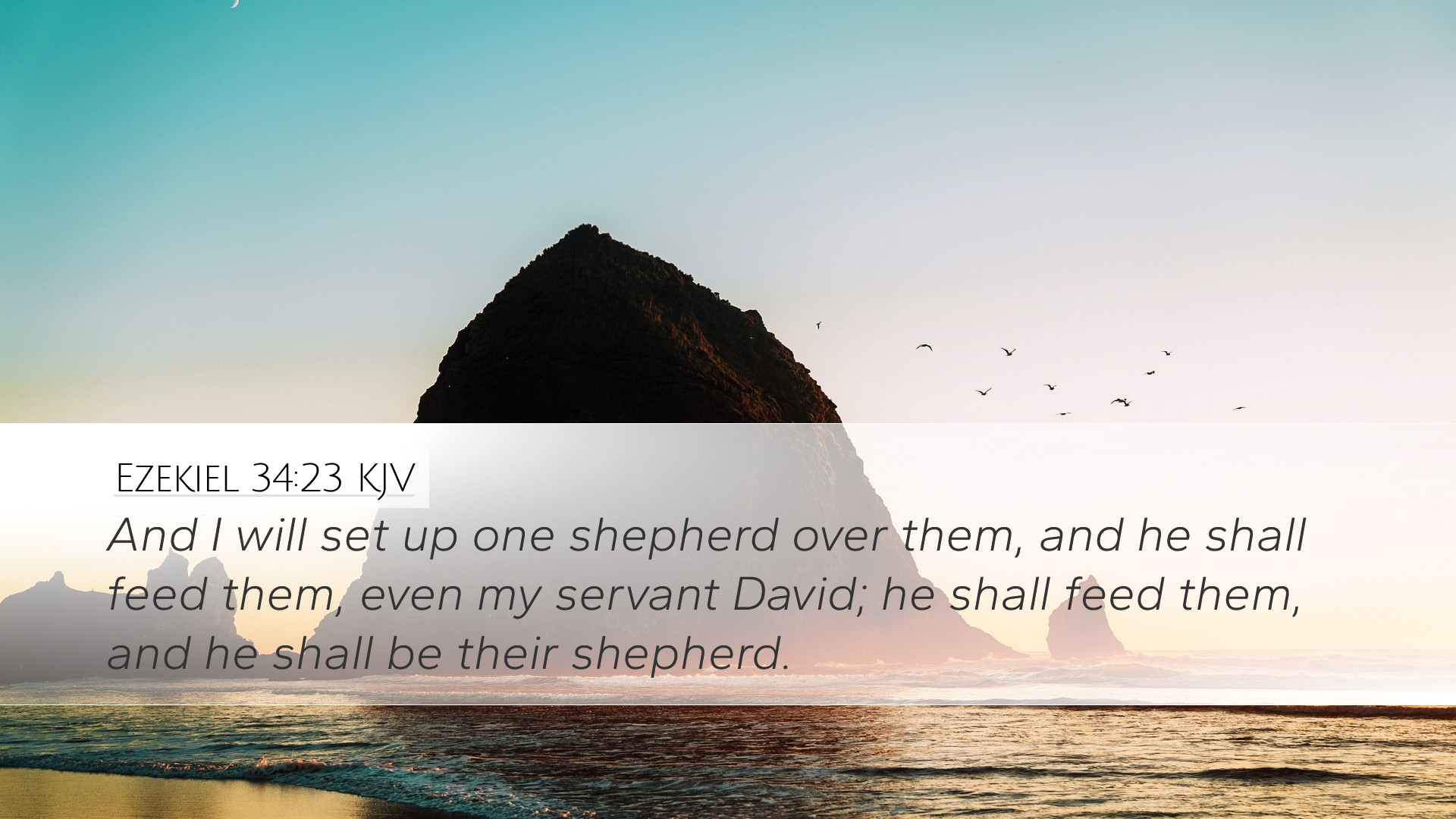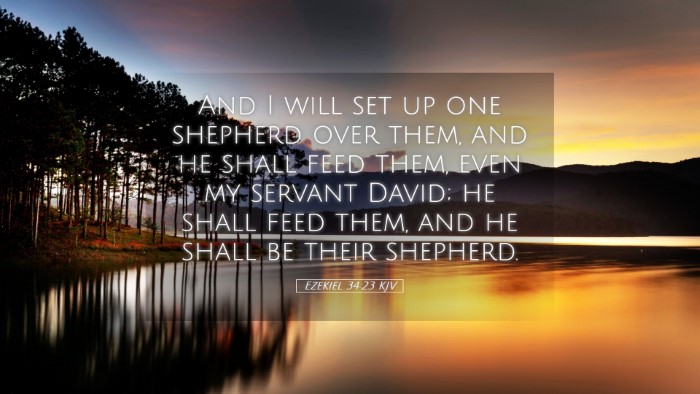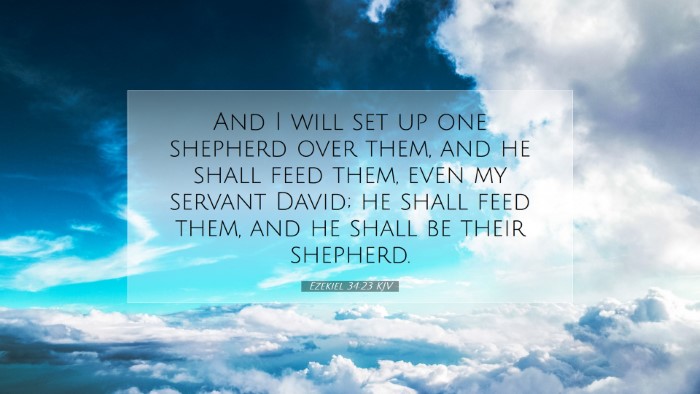Commentary on Ezekiel 34:23
Verse: "And I will set up one shepherd over them, and he shall feed them, even my servant David; he shall feed them, and he shall be their shepherd."
Introduction
Ezekiel 34:23 is a pivotal verse that encapsulates the promise of God regarding leadership and care for His people. This verse appears in the context of the prophetic vision that encapsulates Israel's restoration. It emphasizes both the role of a shepherd and the figure of David, symbolizing a return to faithful leadership under divine guidance.
Contextual Background
In the preceding chapters, particularly Ezekiel 34, the prophet condemns the false shepherds of Israel who have led the people astray. The imagery of a shepherd is central to the Israelite understanding of leadership, where the shepherd embodies care, guidance, and protection. The passage is a prophetic declaration promising a future where God's people will be tended to by a true and righteous leader.
Insights from Commentators
Matthew Henry
Matthew Henry stresses that this verse indicates a transition from the misguided leaders of Israel to a true shepherd appointed by God. He interprets "my servant David" not merely as the historical figure, but as a typological reference to Christ, who fulfills the role of the ultimate Shepherd. Henry points out that this promise speaks to God's deep commitment to His people, assuring them of His continuous provision and guidance. The focus on “one shepherd” underscores the unity and coherence of Christ’s ministry, contrasting sharply with the division and strife caused by previous leaders.
Albert Barnes
Albert Barnes emphasizes the significance of the "shepherd" as both a protector and provider. He connects this verse to the New Testament, asserting that Jesus fulfills this role as the Good Shepherd (John 10:11). Barnes explains that the phrase “my servant David” is intended to inspire hope. The shepherd is characterized by a commitment to nurturing and guiding, reflecting God's inherent qualities. He argues that this verse signifies an important restoration—a return to a divine rule that prioritizes the welfare of the flock above all else.
Adam Clarke
Adam Clarke provides a rich commentary focused on the historical implications of David's reign. He notes that the mention of David indicates a leadership style that is just, merciful, and shepherd-like. Clarke posits that this shepherd will gather the dispersed Israelites and provide for them, distinguishing them from their previous experiences of neglect and exploitation. He correlates this prophetic promise to the anticipated messianic age, highlighting the eschatological dimensions of the text—a time when God's people will be restored and unified under Christ, who oversees their spiritual and physical needs.
Theological Implications
Theologically, Ezekiel 34:23 addresses the heart of God's covenant relationship with His people. It stresses the essential attributes of shepherding: guidance, provision, and protection. The passage is significant for understanding the nature of God as the ultimate caretaker who ensures that His people are not left vulnerable or abandoned.
Literary and Prophetic Significance
The literary structure of this passage contrasts the failures of past leaders against the promise of future restoration. The prophetic voice of Ezekiel presents a vision where hope replaces despair. The direct reference to David reinforces the continuity of God's plan throughout Israel's history, wherein the messianic fulfillment comes through one central figure—Jesus Christ. This underscores the cohesiveness of the biblical narrative, where Old Testament prophecy finds its fulfillment in the New Testament.
Practical Application
- Leadership and Responsibility: For pastors and leaders, this passage serves as a reminder of the weight of their responsibilities as they lead God's people. They are called to shepherd their congregations with the same care and commitment demonstrated by Christ.
- Hope in Restoration: The assurance of God’s commitment to restore His people offers profound hope to those feeling lost or neglected. It encourages believers to trust in God's providence and timing.
- Unity in Christ: The emphasis on “one shepherd” highlights the need for unity in the Church, pointing believers toward the common purpose they share under Christ’s leadership.
- Nurturing Spiritual Growth: Just as a shepherd nurtures his flock, leaders are encouraged to foster environments conducive to spiritual growth and discipleship.
Conclusion
Ezekiel 34:23 provides profound insights into God’s nature as a Shepherd and the promise of a messianic leader who cares for His flock. Through the combined insights of Matthew Henry, Albert Barnes, and Adam Clarke, we find a rich tapestry of meaning that speaks to the responsibilities of leadership in the Church, the hope of restoration for believers, and the unwavering truth of God’s promises. This verse continues to resonate deeply, regardless of the passage of time, inviting all to seek refuge under the care of the Good Shepherd, who is Christ.


